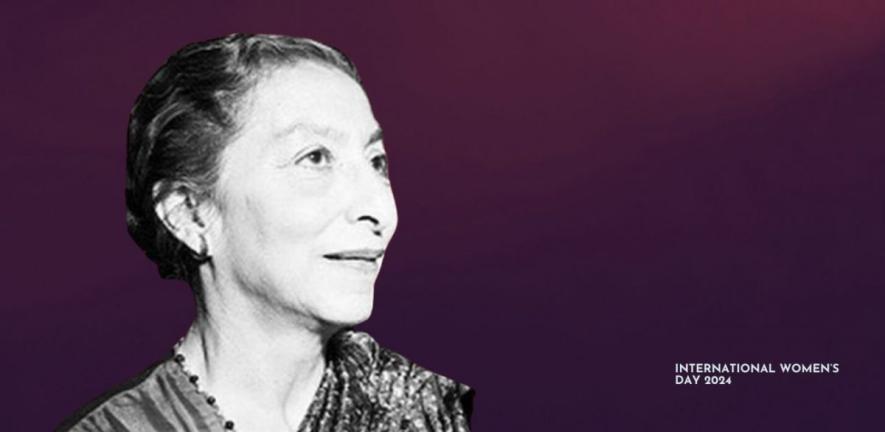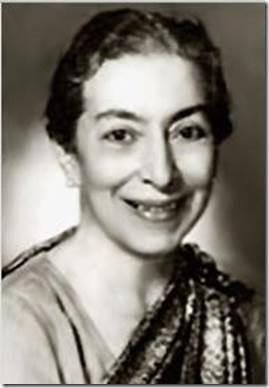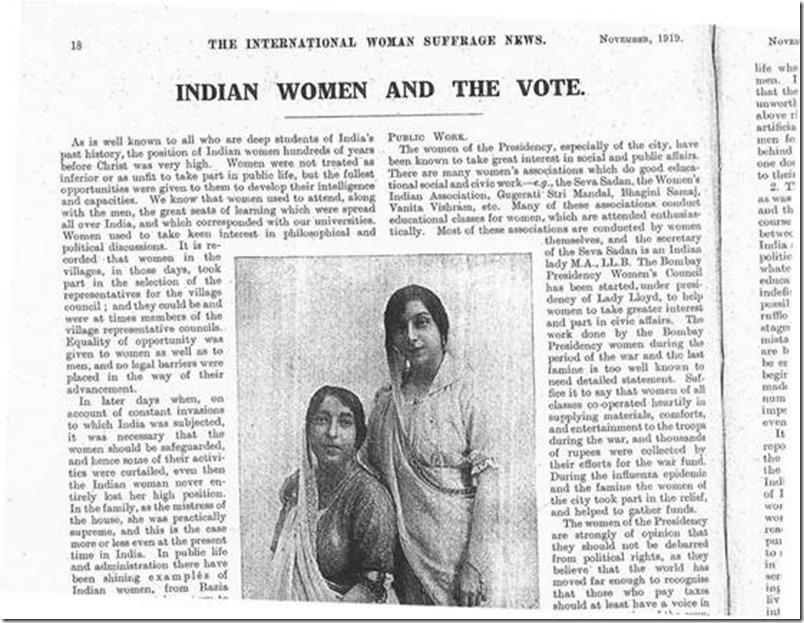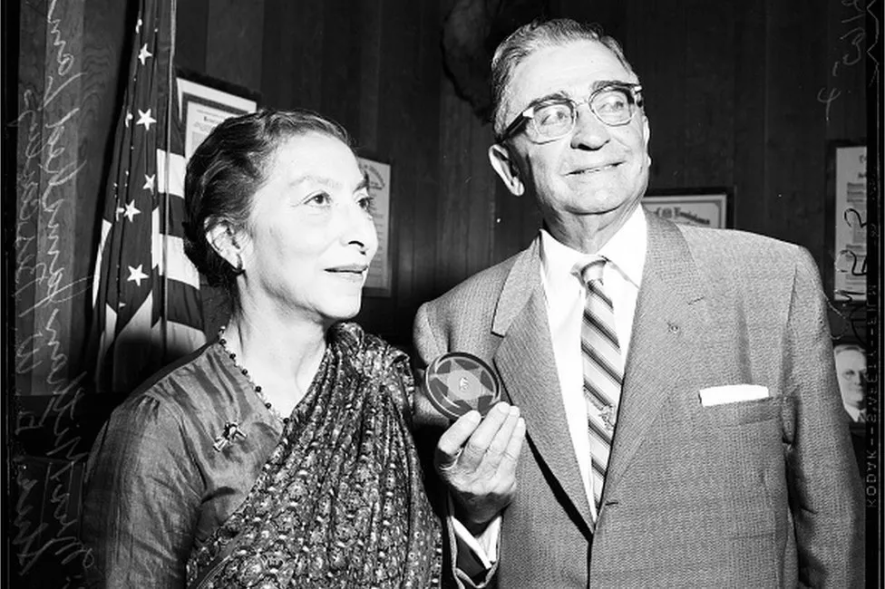Mithan Lam: The First Female Barrister to Practise at the Bombay High Court

On the occasion of this International Women’s Day, we look at the life of Mithan Lam, a champion of women’s rights.
—-
In the first episode of the Bombay Bar Association’s podcast series, Justice Sujata Manohar (the first female Chief Justice of the Bombay High Court) refers to Mithan Lam as one of her inspirations while deciding to practice at the Bombay High Court.

In a career of many firsts, Mithan was the first female barrister to be called to the Bar at Lincoln’s Inn in London, became the first female barrister to practise at the Bombay High Court, became the first female sheriff of Bombay and the first female professor at the Government Law College, Mumbai.
Mithan Lam nee Tata, was born in 1898 in Mumbai to Herabai Tata, a suffragette and champion of women’s rights, and Adeshir Tata, an industrialist and member of the Tata family.
In 1914, she became one of the first women to get admission to the esteemed Elphinstone College in Mumbai. She completed her bachelor’s by topping the economics course.
In 1914, Mithan became one of the first women to get admission to the esteemed Elphinstone College in Mumbai
By that time, the mother and daughter had taken a keen interest in the suffrage movement, being inspired by Sophia Duleep Singh (a leading suffragist and the daughter of the last king of the Sikh Empire).
To further this cause, along with Sarojini Naidu, they were sent to London as a delegation to submit a memorandum to the House of Commons and the then Viceroy of India that Indian women should be given an equal right to vote.

Deciding to stay back in London, in 1919, Mithan, along with her mother, joined the London School of Economics. She enrolled in the postgraduate course in economics and simultaneously read law at Lincoln’s Inn.
Her mother enrolled in courses pertaining to administration, social science and economics.
In 1923, Mithan became the first female barrister to be called to the Bar at Lincoln’s Inn. Incidentally, in December 1923, the government lifted the ban preventing women from practising law.
Immediately, she sailed to Mumbai to practise law. She joined the chambers of the indomitable Bhulabhai Desai, a legendary lawyer and one of the finest to have practised before the Bombay High Court.
A bane since the beginning of time, misogyny, played a huge role in getting her her first case. A solicitor, so sure that his client had a watertight case, hired her services as he wanted to humiliate the other side by having them defeated by a woman.
In her autobiography, she describes that during her initial days at the high court, she was gazed at as if she were a zoo animal.
Along with her legal career, she was a member of the All India Women’s Conference and was an editor of their magazine, Stri Dharma for five years.
In the years thereafter, she handled various types of cases and specialised in matters pertaining to Parsi personal laws, marriage, divorce and inheritance. Outside the courtroom, she continued to be an advocate for women’s and children’s rights.
She was then appointed as a justice of the peace (a judicial officer who dealt with local administrative matters akin to the role of a magistrate).
Later promoted to the post of an executive magistrate, she also became a member of the committee constituted to bring changes in the Parsi Marriage and Divorce Act of 1865. The amendments resulted in the birth of the Parsi Marriage and Divorce Act of 1936.
In 1933, she married Jamshed Shorab Lam, who was also an advocate and a notary and had a son— Shorab— who went on to become a reputed orthopaedic and trauma surgeon and settled and practised in the UK. Shorab was a fellow at the Royal College of Surgeons of the UK.
Immediately after independence, she became the first female sheriff of Bombay (an honorary role conferred to outstanding members of the civil society of a city).
She was also a part-time lecturer at the prestigious Government Law College, Bombay wherein she became the first female lecturer. Her student, Violet Alva went on to become the first female deputy chairperson of Rajya Sabha.

In furtherance to her public duties, she was the Indian delegate to the United Nations’ Commission on the Status of Women in 1957.
Her indistinguishable public role was honoured by the Indian government who conferred upon her a Padma Bhushan in 1962 and etched her name forever in the annals of our nation.
Along with Sarojini Naidu, Mithan and her mother were sent to London as a delegation to submit a memorandum to the House of Commons and the then Viceroy of India that Indian women should be given an equal right to vote.
In her later years, her vision started leaving her and she was blind at the time of her death. She passed away peacefully in 1981.
A trailblazer in all ways, she is an inspiration to female lawyers practising in India and Britain. She continues to live through her autobiography, Autumn Leaves available at the K. R. Cama Institute of Oriental Studies in Mumbai and in Sujata Massey’s novel, The Bombay Prince.
Shrinil A. Shah is an advocate practising before the High Court of Gujarat. He intends to become a chronicler of the legal profession and has a keen interest in the field of constitutional law.
Get the latest reports & analysis with people's perspective on Protests, movements & deep analytical videos, discussions of the current affairs in your Telegram app. Subscribe to NewsClick's Telegram channel & get Real-Time updates on stories, as they get published on our website.
























